Ford Tourneo Connect vs Toyota Prius - Differences and prices compared
Costs and Efficiency:
Price and efficiency are key factors when choosing a car – and this is often where the real differences emerge.
Ford Tourneo Connect has a decisively advantage in terms of price – it starts at 27300 £, while the Toyota Prius costs 39400 £. That’s a price difference of around 12078 £.
Fuel consumption also shows a difference: manages with and is therefore more efficient than the with . The difference is about per 100 km.
As for range, the Ford Tourneo Connect performs noticeable better – achieving up to 119 km, about 33 km more than the Toyota Prius.
Engine and Performance:
Under the bonnet, it becomes clear which model is tuned for sportiness and which one takes the lead when you hit the accelerator.
When it comes to engine power, the Toyota Prius has a noticeable edge – offering 223 HP compared to 150 HP. That’s roughly 73 HP more horsepower.
In acceleration from 0 to 100 km/h, the Toyota Prius is decisively quicker – completing the sprint in 6.80 s, while the Ford Tourneo Connect takes 10.10 s. That’s about 3.30 s faster.
In terms of top speed, the Ford Tourneo Connect performs slight better – reaching 186 km/h, while the Toyota Prius tops out at 177 km/h. The difference is around 9 km/h.
Space and Everyday Use:
Whether family car or daily driver – which one offers more room, flexibility and comfort?
Seats: offers more seating capacity – vs .
In curb weight, Ford Tourneo Connect is minimal lighter – 1542 kg compared to 1620 kg. The difference is around 78 kg.
In terms of boot space, the Ford Tourneo Connect offers clearly more room – 1720 L compared to 284 L. That’s a difference of about 1436 L.
When it comes to payload, Ford Tourneo Connect convincingly takes the win – 818 kg compared to 375 kg. That’s a difference of about 443 kg.
Who comes out on top?
Overall, the Ford Tourneo Connect shows itself to be outperforms in nearly all aspects and secures the title of DriveDuel Champion.
It convinces with the more balanced overall package and proves to be the more versatile choice for everyday use.
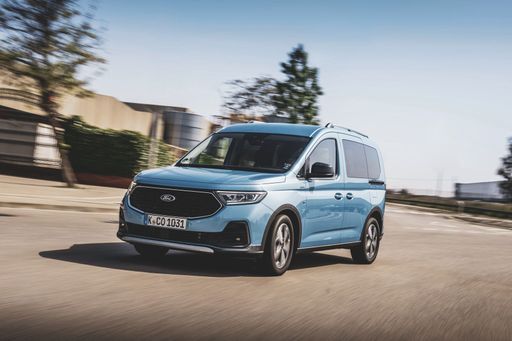 @ Ford Motor Company / Ford Media Center
@ Ford Motor Company / Ford Media Center
Ford Tourneo Connect
Costs and Consumption
View detailed analysis
Engine and Performance
View detailed analysis
Dimensions and Body
View detailed analysis
Ford Tourneo Connect
The Ford Tourneo Connect is a practical, surprisingly polished people-mover that balances family-friendly flexibility with car-like driving manners. With clever storage, sliding doors and a bright, airy cabin it’s a smart choice for buyers who want sensible versatility without sacrificing everyday comfort — and it’s oddly enjoyable to drive for its size.
details @ Ford Motor Company / Ford Media Center
@ Ford Motor Company / Ford Media Center
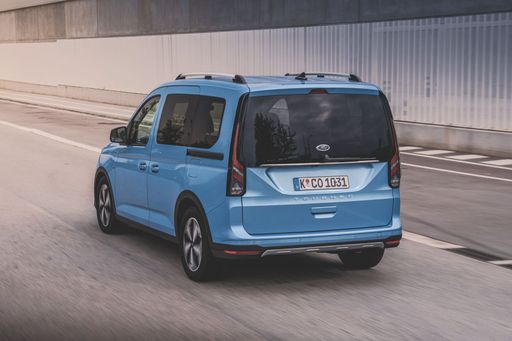 @ Ford Motor Company / Ford Media Center
@ Ford Motor Company / Ford Media Center
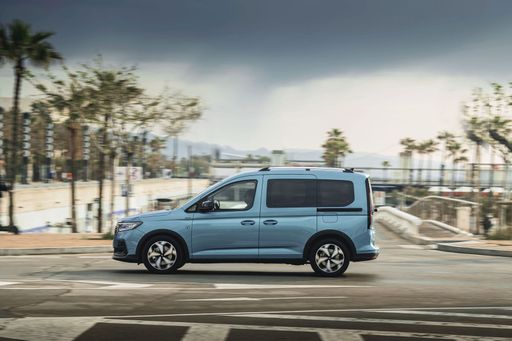 @ Ford Motor Company / Ford Media Center
@ Ford Motor Company / Ford Media Center
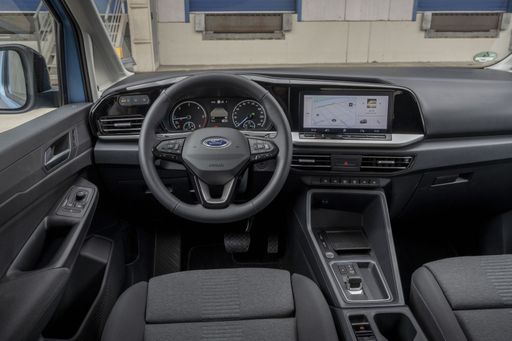 @ Ford Motor Company / Ford Media Center
@ Ford Motor Company / Ford Media Center
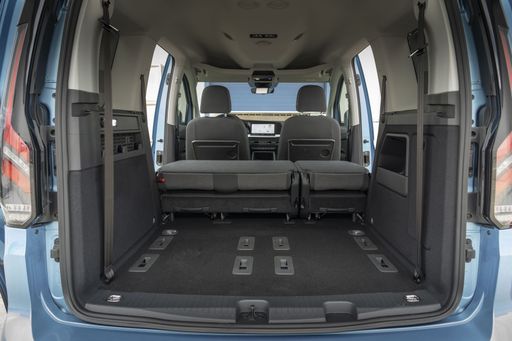 @ Ford Motor Company / Ford Media Center
@ Ford Motor Company / Ford Media Center
Toyota Prius
The Prius glides through traffic like a wise commuter's secret weapon, balancing miserly running costs with an unflappable sense of reliability. It's not a thrill seeker, but its roomy cabin, sensible packaging and low-stress driving personality make it a brilliant choice for buyers who value peace of mind over pulse-raising performance.
details @ Toyota Motor Corporation
@ Toyota Motor Corporation
 @ Toyota Motor Corporation
@ Toyota Motor Corporation
 @ Toyota Motor Corporation
@ Toyota Motor Corporation
 @ Toyota Motor Corporation
@ Toyota Motor Corporation
 @ Ford Motor Company / Ford Media Center
@ Ford Motor Company / Ford Media Center
|
 @ Toyota Motor Corporation
@ Toyota Motor Corporation
|
|
|
|
Costs and Consumption |
|
|---|---|
|
Price
27300 - 41900 £
|
Price
39400 - 45800 £
|
|
Consumption L/100km
0.5 - 6.9 L
|
Consumption L/100km
0.5 - 0.7 L
|
|
Consumption kWh/100km
-
|
Consumption kWh/100km
-
|
|
Electric Range
116 - 119 km
|
Electric Range
72 - 86 km
|
|
Battery Capacity
19.70 kWh
|
Battery Capacity
-
|
|
co2
11 - 164 g/km
|
co2
12 - 17 g/km
|
|
Fuel tank capacity
32 - 50 L
|
Fuel tank capacity
40 L
|
Dimensions and Body |
|
|---|---|
|
Body Type
High Roof Estate
|
Body Type
Hatchback
|
|
Seats
5
|
Seats
5
|
|
Doors
5
|
Doors
5
|
|
Curb weight
1542 - 1781 kg
|
Curb weight
1620 - 1630 kg
|
|
Trunk capacity
1213 - 1720 L
|
Trunk capacity
284 L
|
|
Length
4500 - 4868 mm
|
Length
4599 mm
|
|
Width
1855 mm
|
Width
1782 mm
|
|
Height
1833 mm
|
Height
1470 mm
|
|
Max trunk capacity
2556 - 3105 L
|
Max trunk capacity
-
|
|
Payload
563 - 818 kg
|
Payload
365 - 375 kg
|
Engine and Performance |
|
|---|---|
|
Engine Type
Plugin Hybrid, Petrol, Diesel
|
Engine Type
Plugin Hybrid
|
|
Transmission
Automatic, Manuel
|
Transmission
Automatic
|
|
Transmission Detail
Dual-Clutch Automatic, Manual Gearbox
|
Transmission Detail
CVT
|
|
Drive Type
Front-Wheel Drive, All-Wheel Drive
|
Drive Type
Front-Wheel Drive
|
|
Power HP
102 - 150 HP
|
Power HP
223 HP
|
|
Acceleration 0-100km/h
10.1 - 13.5 s
|
Acceleration 0-100km/h
6.80 s
|
|
Max Speed
175 - 186 km/h
|
Max Speed
177 km/h
|
|
Torque
220 - 350 Nm
|
Torque
-
|
|
Number of Cylinders
4
|
Number of Cylinders
4
|
|
Power kW
75 - 110 kW
|
Power kW
164 kW
|
|
Engine capacity
1498 - 1968 cm3
|
Engine capacity
1998 cm3
|
General |
|
|---|---|
|
Model Year
2024 - 2025
|
Model Year
2023
|
|
CO2 Efficiency Class
B, E, F
|
CO2 Efficiency Class
B
|
|
Brand
Ford
|
Brand
Toyota
|
Is the Ford Tourneo Connect offered with different drivetrains?
Available configurations include Front-Wheel Drive or All-Wheel Drive.
The prices and data displayed are estimates based on German list prices and may vary by country. This information is not legally binding.
